|
Genres, Themes, Actors, and Directors:
- Allen Garfield Films
- Francis Ford Coppola Films
- Fredric Forrest Films
- Gene Hackman Films
- Guilt
- Harrison Ford Films
- Robert Duvall Films
- Spies
- Teri Garr Films
Response to Peary’s Review:
Peary reveals his true feelings about this quietly tense thriller (written and directed by Francis Ford Coppolla) in his Alternate Oscars, where he names Hackman Best Actor of the Year for his role as Harry Caul but asserts that “the picture is extremely flawed”. He argues that “Coppola’s worst mistake is to delve into pretentious fantasy (Harry’s nightmares) and arty images when realism is the picture’s strongest suit”; however, he concedes that “as a character study it works quite well, because Gene Hackman is brilliant at portraying a unique movie protagonist: … a dull man, a paranoid man, a secretive man, an isolated man, [and] a very, very guilty and depressed man”. While I agree with Peary’s assertion about Hackman’s excellent, nuanced performance, I disagree with his overall assessment of the film: by intentionally making it unclear whether Harry’s paranoid suspicions are grounded in reality or his own mind, the movie becomes an increasingly haunting meditation on how guilt effects a “moral (Catholic) man whose work is sleazy and immoral”; the “arty images” and fantasy elements work extremely well in the context of what’s slowly unfolding.
While Peary claims that “Coppola’s pacing is a bit too methodical”, I find the entire narrative gripping from beginning to end — including the intriguing mid-script scenes in which Hackman attends a surveillance expo, reconnects with a sleazy rival (Allen Garfield), and is bedded by one of Garfield’s acquaintances, a frantically seductive middle-aged call girl (Elizabeth MacRae). Peary complains that this seduction turns Harry into a “foolish amateur”, given that his tapes disappear while he’s sleeping with her, but he concedes that “in Coppola’s defense, he may have been showing Harry’s slip-ups as being symptomatic of his deteriorating mental condition” — an assertion I fully support. To that end, The Conversation bears close thematic resemblance to several other paranoia-themed films of the (Watergate) era — including Roman Polanski’s Rosemary’s Baby (1968) and The Tenant (1976), as well as Allan J. Pakula’s The Parallax View (1974). The Conversation remains a powerful, masterfully crafted tale — one well worth repeated viewings.
Redeeming Qualities and Moments:
- Gene Hackman as Harry Caul
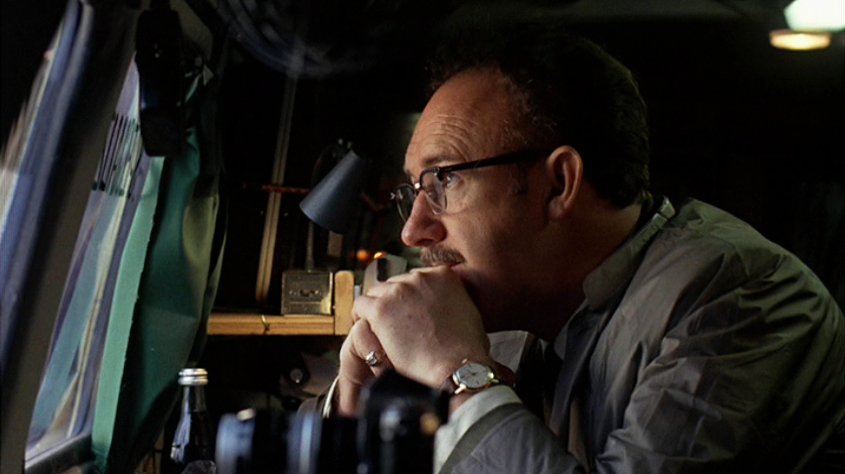
- Fine cinematography
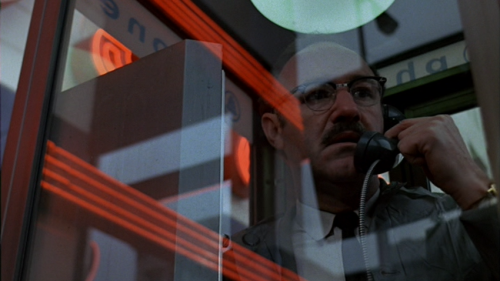
- Excellent use of strategically designed sets
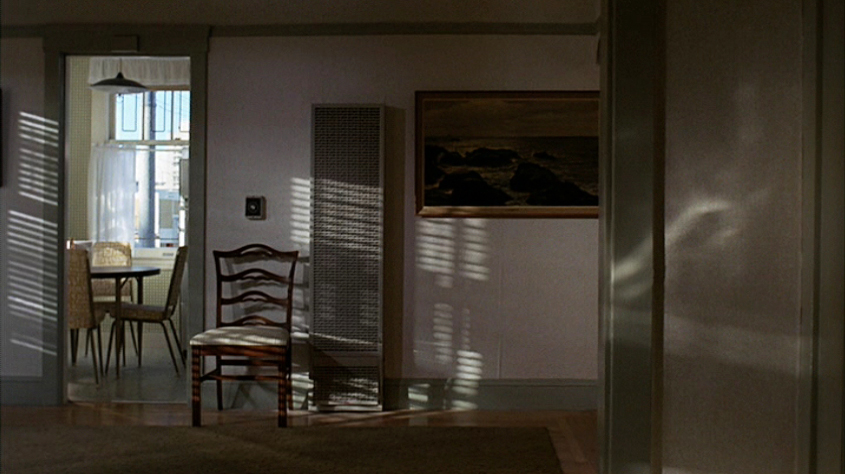
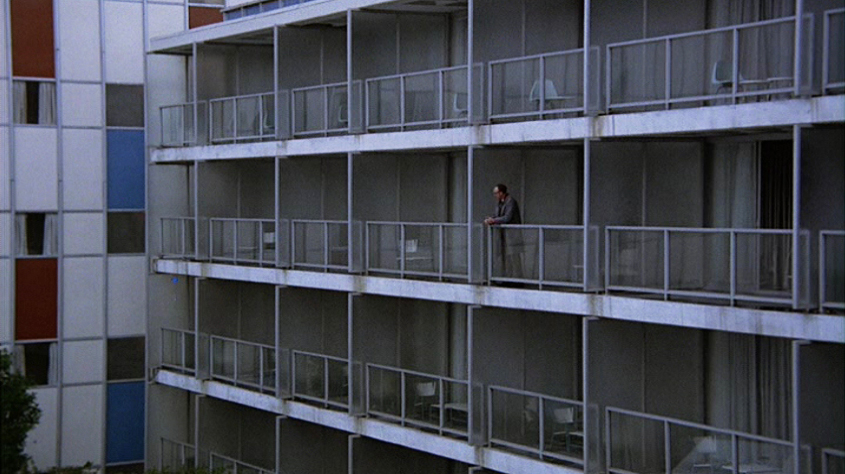
- Powerful editing (of both visuals and sound)

- Coppola’s provocative script
- David Shire’s haunting score
Must See?
Yes. This classic merits multiple viewings.
Categories
- Cult Movie
- Noteworthy Performance(s)
(Listed in 1001 Movies You Must See Before You Die)
Links:
|
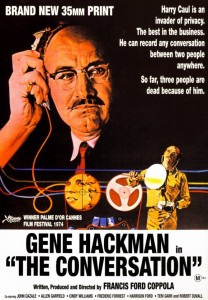





2 thoughts on “Conversation, The (1974)”
A once-must, at least – but subsequent viewings will probably prove enriching.
Seems I’m in agreement with the overall assessment given here – and Peary’s comments do seem considerably off-the-mark; they actually come off like the kinds of things one who is just trying to pick a fight might say.
I see this film every once in awhile (perhaps every 5 years or so?). I think it’s definitely in with the group of films one should know little about prior to seeing it – it does seem to me quite hard to say much about it without spoiling its treasures.
There are a couple things I could safely say, though, I suppose:
Prior to each viewing, it *always* seems that I have forgotten the ending – which is actually a major plus where this film is concerned.
And – with each viewing, I tend to be impressed all over with how the situation plays out with the amount of dramatic tension it carries. Of course, secrets and paranoia lend themselves quite easily to ultimate conflict; yet, there’s something so mundane about the overall landscape of the film. There’s a ‘nondescript’ feeling in it – as there is with Hackman’s character (which is largely what makes the character a challenge to play, I would imagine). My guess is that building suspense in such an environment must have taken precise observation and care on Coppola’s part.
This recent viewing of mine was of the blu-ray disc and the sharpness of the transfer brings out its evocative color design in particular. (IMDb states that Haskell Wexler contributed uncredited as co-DP.) I’m also very fond of Shire’s scoring of the film.
A story like this would not seem to demand remarkable performances from its cast, yet the performances are very effective in their naturalness. But this is Hackman’s movie and his portrait of a closed-off man with an open conscience is stunning – both for what he reveals to us, and what he doesn’t.
A very satisfying, if atypical thriller.
I LOVE it when I can’t remember the endings to satisfying films (which seems to happen quite a bit, given how many I watch).
Agreed that Shire’s score is particularly noteworthy, and haunts throughout.